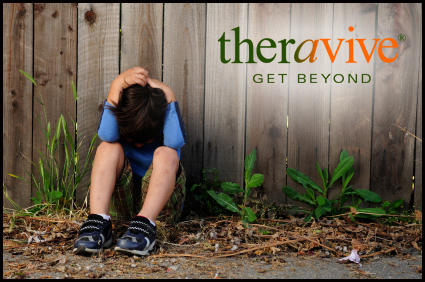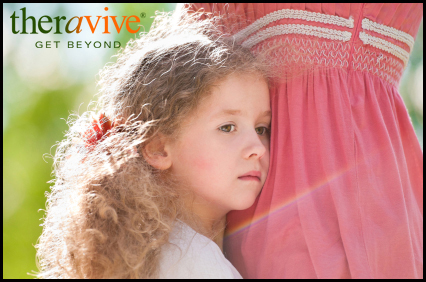 Divorce is one of those things that many of us don't like to talk about, but many of us have been touched by it in one way or another. Divorce is a difficult thing for everyone that is involved, but it affects children a lot. Children need security in their lives, especially if they are young, so if something rocks their world it becomes that much harder for them to deal with. So, in this blog post, we're going to explore how divorce specifically affects children and what you can do in order to help your child get through the divorce.
Divorce is one of those things that many of us don't like to talk about, but many of us have been touched by it in one way or another. Divorce is a difficult thing for everyone that is involved, but it affects children a lot. Children need security in their lives, especially if they are young, so if something rocks their world it becomes that much harder for them to deal with. So, in this blog post, we're going to explore how divorce specifically affects children and what you can do in order to help your child get through the divorce.
How Does Divorce Affect a Child?
As you would expect, there are a lot of ways that divorce can affect your child. For the sake of this article, we're going to focus on younger children that are still living in the home (so this can include teenagers and young adults as well, depending on the circumstance that may be going on). I've left a link below if you're looking for help if your child is getting divorced as an adult, as well, so you can check that out if you need help with that. That being said, here are some of the main ways that divorce can affect children.
Children need routine to get through their everyday lives. Routine is absolutely vital for children, especially if they have other things going on in their lives. They need to feel as if they are secure and that life is "normal," and divorce can take that out of their lives, shaking up the routine and making it difficult for them to function as they did before.
Children prefer both parents, no matter what gender, to help with the process of growing up and learning to live. Even if the relationship is a same sex relationship (two mothers or two fathers), the children need to have both of their parents in their lives in order to feel secure, If the child has always had two parents around, it can be a real shock to the system if that is suddenly turned upside down. Remember - this advice is for those who are getting divorced, and this can differ in situations with single parents or if there was abuse involved and it's unsafe for the child to interact with the other spouse.
Children watch you and see that you're hurting, and it can affect them in their life and their health as well. It really hurts to get divorced, and both parents are going to be in a lot of pain through the whole thing because it's not an easy thing. If they see that Mommy and/or Daddy are hurting, it's going to affect them as well, especially if you have a child that is especially empathetic.
Children sometimes worry that they are the ones to blame for what is going on with the divorce, and may try to remedy the situation for everyone. This is, perhaps, the hardest thing to deal with. Sometimes, children get really upset about the whole thing and continually try and figure out what they did in order to make the divorce happen. It's especially heartbreaking to watch this because your child may feel like they are "bad" or "naughty."
Children can feel insecure, anxious, or struggle with other mental health issues while they are trying to cope with the results of the divorce. This is related to all of the above, but sometimes the divorce will hit so hard that your child will start to struggle with their mental health as well. As a parent, this is hard to watch because these are things that you can't fix yourself and you really want to. There are times where you may need to seek outside help to get your child through the divorce in a healthy manner, and that's absolutely fine - mental health issues, if approached at a younger age, can be dealt with a lot more easily and your child will be more likely to be successful in their adulthood if you deal with them early on instead of waiting. I mention this below, but therapy is usually a must for everyone that is involved in the divorce, just so you can sort through the feelings in a safe place.
 What Can I Do To Help My Child Through a Divorce?
What Can I Do To Help My Child Through a Divorce?
The good news is, there are a lot of things that you can do in order to make sure that your child gets through the divorce. It will take a lot of work on your part and on the part of your ex, but you can make it work and help to get rid of some of the negative results that may happen as a result of the divorce. Here are some suggestions that you can try with your children to see if they can help everyone involved to cope with the situation a lot better.
Be open, honest, and willing to talk about feelings. This is the most important part of the whole thing. Let your children know that you are willing to talk about their feelings, and you need to be honest about things too. One thing you have to do is make sure that your children understand that you are not getting back together - even though they may have heard stories about parents getting back together after a divorce, those cases are few and far between. So let them know that so that they can take the stress off from that idea as well. Honesty is the best policy, so make it a priority through the entire divorce process and after everything has been finalized as well. If your kids are not being open with you, as I mentioned above, you will want to make sure that you go to therapy - it could help them to open up and feel safer talking about it.
In no circumstances should you ever badmouth your ex-spouse in front of your children. Please don't ever do this. It may be hard, especially if there were bad circumstances that were around the whole divorce. Even if you're talking to other people, make sure that little ears aren't around to hear if you're talking poorly about your spouse. It can hurt their feelings, even if you don't intend them to, or you can make it so that they feel animosity toward the other parent about what has happened. You want to keep things as positive as possible so it doesn't turn into a "me against you" type of thing between the ex-spouses.
Do everything that you can to maintain the relationship between your children and both sides of the family. This is hard, but you want to make sure that your children still have access to both sides of the family if it is possible. You will have to work at this part, but there are plenty of stories about parents who have divorced and were able to remain friends, which can be incredibly helpful to the children that are involved in the situation. Some families will even take their blended families on vacations or celebrate holidays together. This isn't always possible, so do not feel guilty if you can't do that with your situation, but at least try to be flexible and allow your children to get access to both families with regularity so that they can get some sort of normalcy and don't feel totally cut off from the side of the family that they aren't living with a majority of the time. It can help you through it as well.
Establish new family procedures and rituals to "fill in the gap" between the old life and the new life. This is hard to do, but try starting something new with your family in order to get them used to what is going on with the divorce. Try going on a vacation, have a ritual that you add at dinner, get a puppy or kitten. Do whatever you can to establish the new life as something that everyone is going to enjoy, even though things may be different now. Take time in between, of course, because if you make rash decisions you're not going to enjoy it as much, but make sure you establish them as soon as you can.
If there were negative circumstances around the divorce (abuse, drug use, etc), make sure that you keep your family safe above everything else. This is important, because everything that I've said thus far applies if the divorce was on terms that didn't involve violence or illegal activity. But what if the divorce did involve those things? You need to do what you can to keep your children and your family safe, whether that's getting out of touch, getting a restraining order, or doing other things to keep your spouse away from your family while they are in recovery. This will be dealt with during the process of the divorce (with the court) and you can talk about it with your therapist as well.
Take care of yourself - the better health that you are in, the more likely you will be able to help your children and be strong for them. This is probably the most important thing that you have to do. You need to stay healthy for as long as you can. Make sure that you're getting the right amount of sleep, getting out and exercising, spending time with people that you love and doing things that you enjoy. Eat right, don't slack on cooking either; continue to make healthy meals for your family to enjoy. You should consider going to therapy as well. By keeping your own physical and mental health right, you will be able to help your children through their feelings and you will feel a lot better about what is going on with your life as well.
As mentioned above, you may need to help your child by putting them through therapy - even if they don't seem to have any issues on the outside, they may be working through a lot on the inside and not talking about it. By helping your child through therapy, they can talk about their feelings with a neutral party and they can sort things out in a healthy way. There are plenty of therapists that you can find using our website that can help you and your child work through the feelings that may come with a divorce. Don't go through it alone.
_________________________________________________________________________________________________________________________________
Kam, K. (n.d.). What to Do When Your Children Divorce. Retrieved July 21, 2014, from http://www.webmd.com/sex-relationships/features/what-to-do-when-your-children-divorce
Kemp, G., Segal, J., & Smith, M. (2013, December). Children & Divorce. Retrieved July 21, 2014, from http://www.helpguide.org/mental/children_divorce.htm
New, M. (2011, January 01). Helping Your Child Through a Divorce. Retrieved July 21, 2014, from http://kidshealth.org/parent/positive/talk/help_child_divorce.html
Orlins, S. (2010, November 07). 12 Ways to Help Your Kids Deal With Divorce. Retrieved July 21, 2014, from http://www.huffingtonpost.com/susan-orlins/12-ways-to-help-your-kids_b_780062.html
St. Lifer, H. (n.d.). 11 Rules for Helping Your Child Deal With Divorce. Retrieved July 21, 2014, from http://www.parents.com/parenting/divorce/coping/helping-child-deal-with-divorce/
About the Author
 Marti Wormuth, MA
Marti Wormuth, MAMarti has a Bachelor’s Degree in Sociology and a Master’s in Communication Studies. Her favorite activities include reading, playing games, and hanging out with the students at her church. Marti volunteers with the youth ministry at her church as a teacher and mentor. Because of this, she recently started another degree, her graduate certificate in student ministries. She considers her current graduate work to be a stepping stone to becoming a youth pastor or a published author.
Professional Website:
martis-miscellany.com/